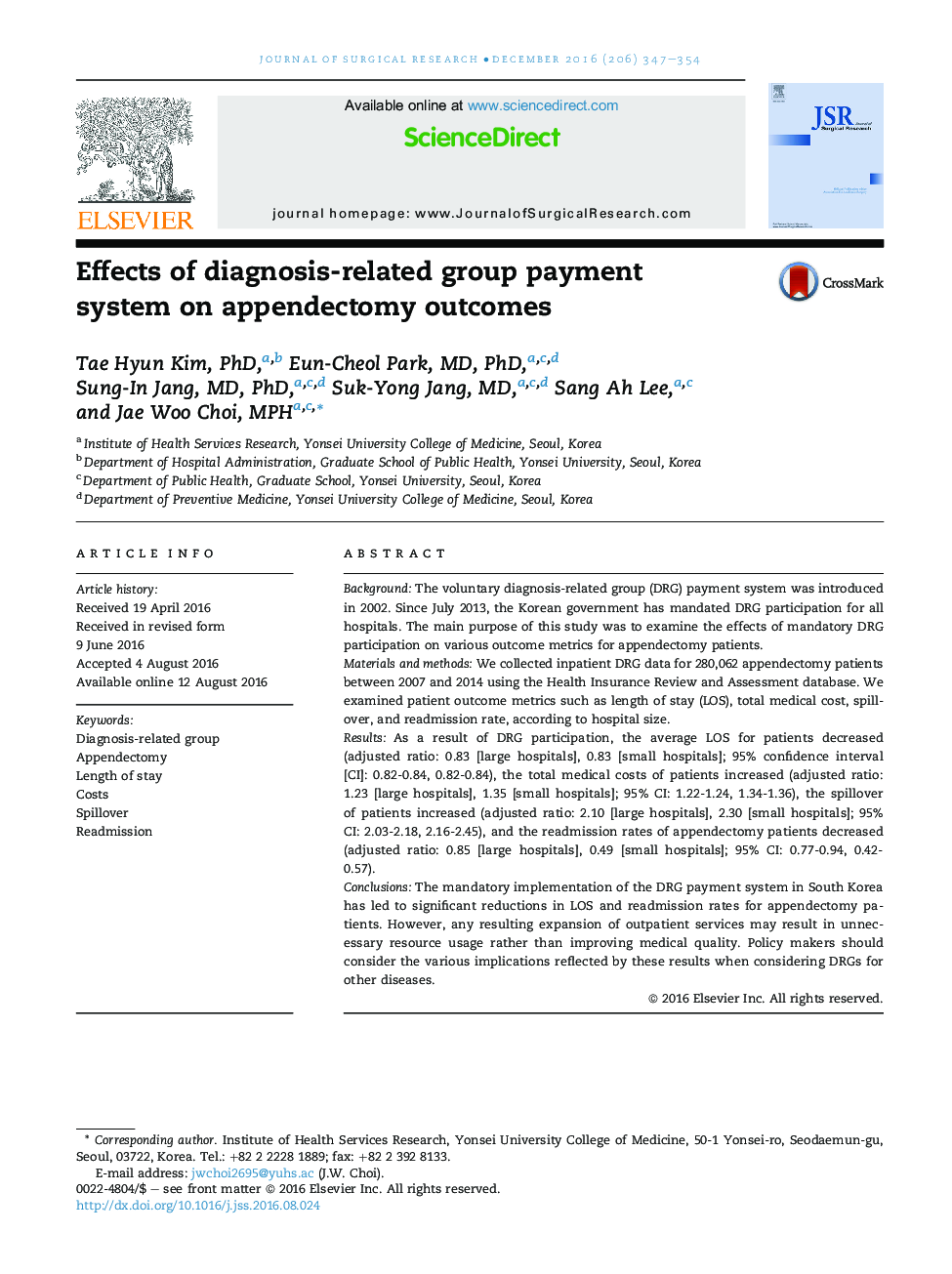| Article ID | Journal | Published Year | Pages | File Type |
|---|---|---|---|---|
| 5733935 | Journal of Surgical Research | 2016 | 8 Pages |
BackgroundThe voluntary diagnosis-related group (DRG) payment system was introduced in 2002. Since July 2013, the Korean government has mandated DRG participation for all hospitals. The main purpose of this study was to examine the effects of mandatory DRG participation on various outcome metrics for appendectomy patients.Materials and methodsWe collected inpatient DRG data for 280,062 appendectomy patients between 2007 and 2014 using the Health Insurance Review and Assessment database. We examined patient outcome metrics such as length of stay (LOS), total medical cost, spillover, and readmission rate, according to hospital size.ResultsAs a result of DRG participation, the average LOS for patients decreased (adjusted ratio: 0.83 [large hospitals], 0.83 [small hospitals]; 95% confidence interval [CI]: 0.82-0.84, 0.82-0.84), the total medical costs of patients increased (adjusted ratio: 1.23 [large hospitals], 1.35 [small hospitals]; 95% CI: 1.22-1.24, 1.34-1.36), the spillover of patients increased (adjusted ratio: 2.10 [large hospitals], 2.30 [small hospitals]; 95% CI: 2.03-2.18, 2.16-2.45), and the readmission rates of appendectomy patients decreased (adjusted ratio: 0.85 [large hospitals], 0.49 [small hospitals]; 95% CI: 0.77-0.94, 0.42-0.57).ConclusionsThe mandatory implementation of the DRG payment system in South Korea has led to significant reductions in LOS and readmission rates for appendectomy patients. However, any resulting expansion of outpatient services may result in unnecessary resource usage rather than improving medical quality. Policy makers should consider the various implications reflected by these results when considering DRGs for other diseases.
